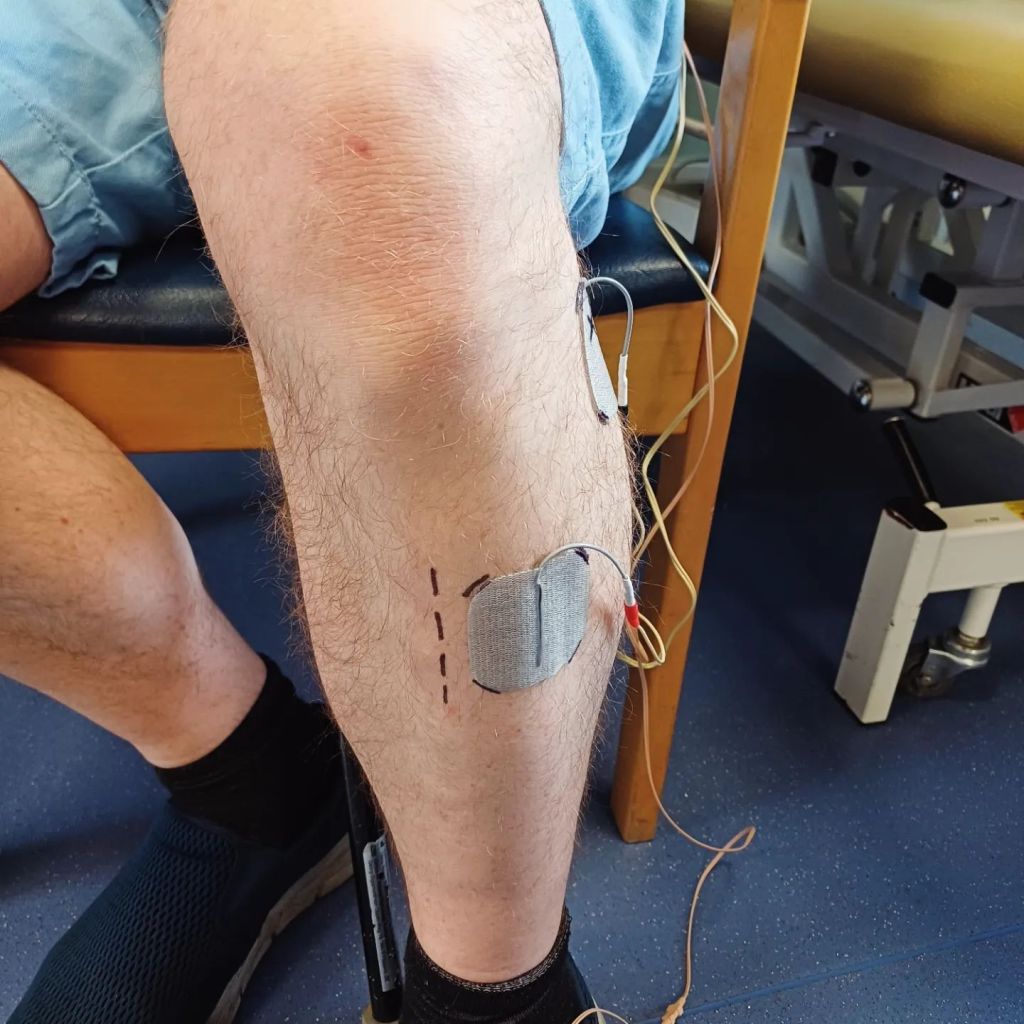My late mum was the fount of all knowledge when it came to family history.
She knew the names of all the distant cousins; who was born out of wedlock; who had died before their time and why; who had problems with alcohol; who was concealing their extra-marital affairs; who was LGBT in an era when this wasn’t mentioned, and things like that. She must now be a bit of a gossip among the ancestral ghosts, I think.
And she’d know all this on my dad’s side of the family, too.
Family history has always been a bit of a jumble in my head. Growing up, any innocent question about family on my part would be met with a reply that would instantly send my brain into an emergency shutdown, subconsciously maintaining a polite, listening face, while my mum – in her element – would start reeling off the facts: “my mother’s second cousin’s husband’s uncle was once married to the daughter of…” and so on.
Both my parents are no longer here. Mum died seventeen years ago, and my dad’s clogs popped relatively recently. Since I cleared their (my) old house I’ve been storing a few carrier bags in my loft, all stuffed with old photographs spanning the last 150 years or so.
Looking through them, has been informative, particularly because mum has helpfully scribbled a note on the backs of them explaining the situation and circumstance each was taken in. She’s also scribbled a note listing names and saying how those depicted are related to each other.
So, I thought it would be a good opportunity to build my family tree online; see how it all fits together, and store a few of those photos that I’ve scanned. I used Ancestry to do this, and frankly found it a breeze. I uncovered quite a lot of interesting information too. I’m also exploring the roots of the tree as much as I can, following them into areas where the gene pool generally stayed in a single spot over several generations.
Dad’s side of the family are quite a varied bunch, hailing from Scotland, Sussex, Devon, West London, Ireland and County Durham as well as a long line of Serjeants based in Ipswich (which is where my dad was born and grew up).
Mum’s family are very heavily East Midlands, and by that, I mean I have one strand in my direct bloodline from Nottinghamshire, one from the other side of the Pennines in the Staffordshire potteries, and the rest, the vast majority, are all north Derbyshire.
They came from Newark, Uttoxeter, Ashover, Heage, Chesterfield, Tupton and Wingerworth and they all converged on the new industrial town of Clay Cross to work in the collieries. A new railway tunnel had exposed viable coal seams as it drilled through the north Derbyshire landscape.
It was as if George Stephenson himself had pulled a plug from a plughole as he chuffed through, and in the subsequent vortex all eligible men for miles had been sucked underground to mine coal.
So, I’ve found the tree building illuminating, particularly with the little stories it throws up. For instance, my great grandad on my mum’s side (my grandad’s dad) is an interesting one. He was born out of wedlock to a 19-year-old mother, taking her name, Davies, instead of Swift like his dad and siblings. He had children with two sisters (one of the sisters had died young). Much later in life, he also discovered his parents dead in their brand-new retirement bungalow, asphyxiated in their sleep by a faulty gas fire.
On my dad’s side, I have a great grandad who worked as a butler in a large country house, who was himself the son of a Royal Artillery gunner, which probably explains why I can lose myself when polishing shoes using a pair of heavy-duty antique shoe brushes (family heirlooms, which I now figure must be 19th century military issue).
Also on his side,I was interested to explore Dad’s Irish ancestry. I was always told I had O’Dowd family hailing from Sligo which is a part of the country Mrs Dave has strong connections with, and so is already quite familiar to me.
I’ve discovered, according to UK census returns, that my great great grandmother, Mary O’Dowd, was born in Roscommon in 1851 and not Sligo as originally thought. She died at the age of 51, an age recently arrived at by myself, and judging from photos and portraits, she had a relatively comfortable life in Pimlico, west London. She’s still a big grey area though, as I know nothing about her first thirty years, and I’ve only seen her married name written down. Even that changes from Sanderson (the official name) to Saunderson, and to Saunderson-Burage depending on where you look.
I can imagine it might be needle and haystack time when looking for a Mary O’Dowd, born in 1851 Roscommon. Particularly when you only have your family’s, admittedly reliable, word that she’s an O’Dowd.
I just wish I had more info on her family and her migration, which must be famine related, but who were her family members and how did she end up marrying into the English middle-classes? Did she make the journey alone? Who were her parents and family and what became of them?
I have three photographs and one watercolour of her, and she’s the spit of my eldest daughter. The earliest photo is of a little girl sitting on a stool in a photographer’s studio in London according to the info on the back, which suggests she migrated at a very early age.
Speaking of the spit of my eldest daughter, I bought her an Ancestry DNA kit for her to send off her saliva. I figured she’s a history student, so she’ll be into that.
She is.
Ancestry breaks your DNA down by parent and her reports that she had no Irish on my side but 6% Norwegian and a whole lot of Scottish spurred me into action.
So, what makes me me? How did I get the Norwegian? Which elements of my parents influence my genetic breakdown? Did I get any Irish from Mary O’Dowd? What geography shapes my English blood? Do I come from farming stock or mining stock?
So, I waited for the DNA kits to come down in price, bought one, did nothing with it for about a year, and then sent it off and waited a couple of months while the boffins in lab coats did their thing.
The breakdown goes something like this:
I’m 6% Irish which ties in mathematically to having an Irish great-great-grandparent. Thank you, Mary O’Dowd.
I’m 9% ‘Scandiwegian’ (a fantastic word I picked up the other day) – mostly Denmark and Sweden and mostly on my mum’s side which explains her love of IKEA, ABBA, Bjorn Borg, and Carlsberg Export (kidding, sorry Mum).
I’m 35% Scottish, explaining why there’s pictures of my great grandad Kay fully sporraned and kilted out in McKay tartan. Mostly dad’s side for that.
And I’m 50% English of which practically all of it is Mum’s, so East Midlands, a little bit of potteries, and some South Yorkshire. This ties in with where I live right now. There is nothing of note from the south of the country.
So, I’m not genetically a Serjeant it seems. My DNA shows no Ipswich, no Suffolk, no East Anglia at all!
It’s funny because I have a love/hate relationship with my family name. I’ve spent the last half century spelling it out for people. It’s even a legitimate alternative spelling of Sergeant (with a g), so actually appears in most trustworthy dictionaries as a more archaic version of the word. It lives on particularly at the opening of parliament and the serjeant-at-arms who accompanies Black Rod. But it is an absolute pain in the backside.
So, I’m wondering what would be a good replacement surname? What would I like to be called instead? What would fit in with my DNA? What would be cool?
I’m looking to my mum’s family tree, as ultimately, while I can claim the heritage from Dad, I’m not Scottish and I’m certainly not Irish. It would be cool if I was, I think, but I don’t want to be pretentious and I now feel more rooted, snuggled in the bosom of my Derbyshire ancestry more than ever. I think a Derbyshire name would be more relevant.
My first thought was my gran’s maiden name Wain. Wain is very much a Derbyshire name but it does have negative connotations among local secondary teachers I know, as a family of ne’er-do-wells and ruffians. Plus, I’m not sure about how it rhymes: Dave Wain, Shane Wain, Jane Wain, Dwayne Wain, Wayne Wain etc
So, perhaps my mum’s maiden name, Davies? Too Welsh, I think, and a bit like a Welsh version of Smith. I have no Welsh. Also, considering the family tree, it represents the potteries. I remember going to Leek once for a wedding and that’s the last time I set foot in Staffordshire, so I have no connections apart from a thin bloodline.
But there is a top contender. It sounds cool. It has a good meaning and derivation, it comes from a long line in a village local to me, and it died in my lineage when my great grandad was born out of wedlock. It would make a good tattoo of one of my favourite birds swooping past my ears or spiralling down my arm.
It should have been my mum’s family name:
Swift.
If I were to go through the hassle of changing my name. This is the one I’d choose for definite. Maybe it could be my nom-de-plume – David Swift. In my mind there’s nothing I feel uncertain about in this name, so I told my youngest about it.
“Cool!” she said, “Like Taylor Swift!”
Hmm… Maybe I’ll get the swift tattoo and leave it at that.










You must be logged in to post a comment.